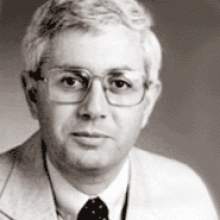Jack P Antel
Professor
Neurology and Neurosurgery

Research Interests
Immune regulation and brain-immune interactions, autoimunity and multiple sclerosis
Research Orientations
Our studies focus on the mechanisms underlying the interactions between the immune system and central nervous system (CNS) and how such interactions contribute to the tissue injury observed in such human neurologic disorders as multiple sclerosis, HIV encephalopathy, and Alzheimer's disease. The studies are conducted using human peripheral blood derived immune cells and human neural cells (astrocytes, microglia, oligodendrocytes (OLs)), derived from surgically resected adult human CNS tissues.
Specific questions being studied are:
1. What effects the endogenous glial cells of the CNS (astrocytes, microglia) have on T cells which infiltrate this compartment?
Continued recruitment and activation of Glial cells can serve as antigen presenting cells (APCs) to T cells but whether they promote or inhibit T cell responses seems dependent on the production of specific cytokines and expression of surface co-stimulatory molecules by the glial cells. By defining the precise properties of human adult glial cells which determine their APC capacities, we hope to learn how to modulate these functions for therapeutic purposes.
2. What effects infiltrating T cells have on the endogenous glial cells?
How will the array of soluble and cell surface molecules expressed by T cells modulate the properties of the glial cells? Our specific approaches are to determine whether T cells induced in vivo (patients receiving immunomotherapies) or in vitro to express distinct cytokine profiles differentially effect glial cell functions and to selectively interfere with molecules mediating T cell-glial interactions using specific antibodies or receptor antagonists. Most of the latter reagents are being considered for clinical trials.
3. How do infiltrating T cells and activated glia contribute to the actual tissue injury as occurs in neurologic diseases?
Such injury selectively directed at myelinating cells (OLs) is regarded as the primary mechanism of injury in multiple sclerosis. A specific focus of our work is what cell surface or intra cellular properties of the OLs determines their apparent selective vulnerability to injury mediated via the tumor necrosis factor (TNF) receptor (R) superfamily (fas, TNF-R, p75 nerve growth factor R). Products of activated microglia and astrocytes are implicated as secondary mediators of neuronal injury in Alzheimer's disease and AIDs encephalopathy.
- Alter A, Duddy M, Hebert S, Biernacki K, Prat A, Antel JP, Yong VW, Nuttall RK, Pennington CJ, Edwards DR, Bar-Or A. "Determinants of human B cell migration across brain endothelial cells." J Immunol. 2003; 170(9):4497-505.
- Seguin R, Biernacki K, Prat A, Wosik K, Kim HJ, Blain M, McCrea E, Bar-Or A, Antel JP. "Differential effects of Th1 and Th2 lymphocyte supernatants on human microglia." Glia. 2003; 42(1):36-45.
- Seguin R, Biernacki K, Rotondo RL, Prat A, Antel JP. "Regulation and functional effects of monocyte migration across human brain-derived endothelial cells." J Neuropathol Exp Neurol. 2003; 62(4):412-9.
- Seguin R, Moditi Z, Rotondo R, Biernacki K, Wosik K, Prat A, Antel JP. "Human brain endothelial cells supply support for monocyte immunoregulatory functions." J Neuroimmunol. 2003; 135(1-2):96-106.
- Kim HJ, Antel JP, Duquette P, Alleva DG, Conlon PJ, Bar-Or A. "Persistence of immune responses to altered and native myelin antigens in patients with multiple sclerosis treated with altered peptide ligand." Clin Immunol. 2002; 104(2):105-14.
- Santos AC, Narayanan S, de Stefano N, Tartaglia MC, Francis SJ, Arnaoutelis R, Caramanos Z, Antel JP, Pike GB, Arnold DL. "Magnetization transfer can predict clinical evolution in patients with multiple sclerosis." J Neurol. 2002; 249(6):662-8.
- Chakfe Y, Seguin R, Antel JP, Morissette C, Malo D, Henderson D, Seguela P. "ADP and AMP induce interleukin-1beta release from microglial cells through activation of ATP-primed P2X7 receptor channels." J Neurosci. 2002 Apr 15;22(8):3061-9.
- Prat A, Biernacki K, Lavoie JF, Poirier J, Duquette P, Antel JP. "Migration of multiple sclerosis lymphocytes through brain endothelium." Arch Neurol. 2002 Mar;59(3):391-7.
- Biernacki K, Prat A, Blain M, Antel JP. "Regulation of Th1 and Th2 lymphocyte migration by human adult brain endothelial cells." J Neuropathol Exp Neurol. 2001 Dec;60(12):1127-36
- Soos JM, Krieger JI, Stuve O, King CL, Patarroyo JC, Aldape K, Wosik K, Slavin AJ, Nelson PA, Antel JP, Zamvil SS. "Malignant glioma cells use MHC class II transactivator (CIITA) promoters III and IV to direct IFN-gamma-inducible CIITA expression and can function as nonprofessional antigen presenting cells in endocytic processing and CD4(+) T-cell activation." Glia 2001 Dec;36(3):391-405.
- Narayanan S, De Stefano N, Francis GS, Arnaoutelis R, Caramanos Z, Collins DL, Pelletier D, Arnason BGW, Antel JP, Arnold DL. "Axonal metabolic recovery in multiple sclerosis patients treated with interferon beta-1b." J Neurol. 2001 Nov;248(11):979-86.